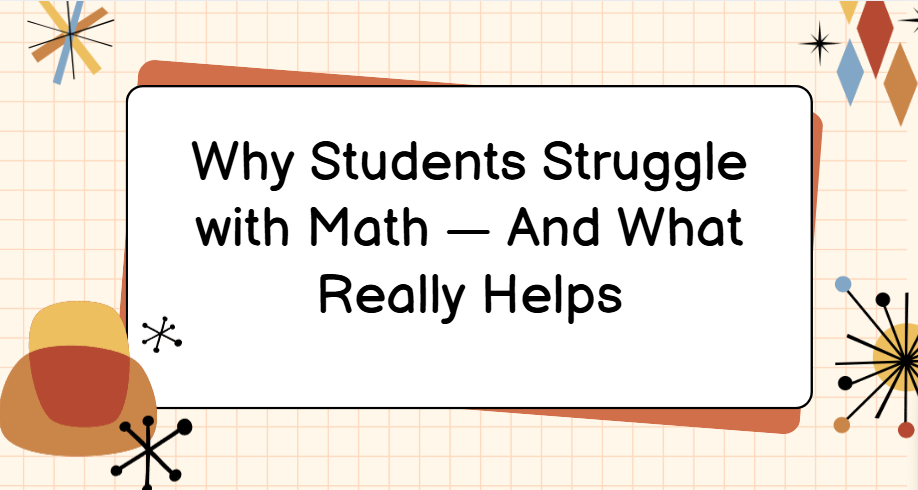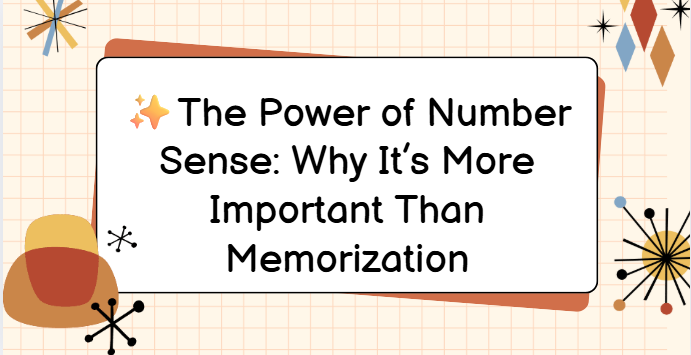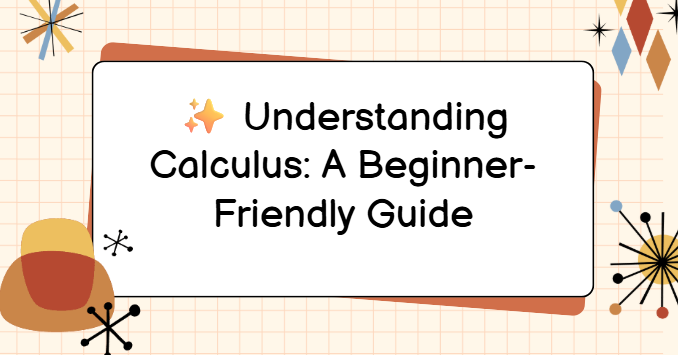
Why Students Struggle with Math — And What Really Helps
✨ Why Students Struggle with Math — And How to Fix It
When someone asks, “Why do students struggle with math?”, the real question isn’t just about numbers. It’s about the lump in their throat when a test is handed out. It’s about the silence in class because they’re too scared to ask for help.
Students struggle with math not because they’re not smart enough. Not because they’re lazy. But because somewhere along the way, math stopped making sense—and no one slowed down to explain why.
At Mathematical Space, we don’t just teach math. We fix the fear that comes with it. And more than that, we rebuild trust—between the child and their own brain.
🧠 1. Why Students Struggle with Math (and It’s Not What You Think)
Let’s be honest. Nobody’s born “bad at math.”
But students struggle with math when:
-
Lessons feel rushed or robotic
-
They miss a small concept—and it snowballs
-
Teachers don’t have time to give 1:1 attention
-
They’re afraid of getting laughed at for “silly” mistakes
-
Pressure from school or home builds up
It’s not a lack of intelligence. It’s a lack of understanding. And if you’ve ever watched your child’s eyes glaze over during homework, you know exactly what we mean.
👀 2. Signs You Might Be Missing
Sometimes, when students struggle with math, they don’t always say it outright. But they show it:
“Math is boring.”
“I’ll never use this in real life.”
“I’m just not a math person.”
Sound familiar? These aren’t complaints. They’re shields. Shields kids put up to protect themselves from feeling like they’ve failed.
What they’re really saying is:
“I don’t understand this, and I’m scared to try again.”
🌱 3. How to Actually Help (Hint: It’s Not More Practice Sheets)
Here’s the truth most schools won’t say out loud:
If a child didn’t understand something the first time, repeating it louder or more often doesn’t help.
At Mathematical Space, we approach it differently:
-
We go back to the basics—without shame
-
We use visuals, real-life examples, and storytelling
-
We give them a safe space to make mistakes
-
We focus on progress, not perfection
Because when students feel safe, they stop hiding. And when they stop hiding, they start learning.
💬 4. What Real Kids Say (When They’re Finally Heard)
“I didn’t hate math. I hated feeling stupid.” – Aarav, Class 9
“Once I understood why we were doing it, everything clicked.” – Sanika, Class 7
“Math used to scare me. Now, it’s kinda fun.” – Zoya, Class 6
You know what all of them had in common?
They believed students struggle with math because something was wrong with them.
We showed them it wasn’t.
👪 5. What Parents Can Do (Even If You’re Not a Math Whiz)
You don’t need to solve equations to support your child. Here’s what helps:
-
Stay calm — Your stress becomes their stress
-
Ask, don’t accuse — “What confused you?” goes further than “Why didn’t you get this?”
-
Relate it to real life — Show them math in cooking, shopping, or cricket
-
Find the right support early — Before fear turns into frustration
Students struggle with math when it feels like a mountain. Your job? Help them see it’s just one step at a time.
🔄 6. Frequently Asked (and Honest) Questions
Is it too late?
Never. We’ve helped kids in Class 12 who thought math was a lost cause. It’s not.
What makes your team different?
We don’t rush. We don’t judge. We don’t move on until the child feels ready. Our support is personal, warm, and patient.
How soon will I see changes?
Sometimes in weeks. Sometimes months. But the real shift is in their attitude. That often happens from Day 1.
❤️ Final Words — It’s About More Than Marks
At the end of the day, students struggle with math for all sorts of reasons. Some emotional. Some academic. Some just because life got busy and no one noticed when they fell behind.
But here’s the good news:
When they’re supported, when they feel safe, and when they’re taught in a way that finally makes sense…
They stop struggling.
They start believing.
And they realise—“I can do this.”
👉 Ready to help your child feel confident in math again?
Explore our one-on-one support programs at mathematicalspace.com — because math isn’t just numbers. It’s self-belief.
Our website
Our instagram


